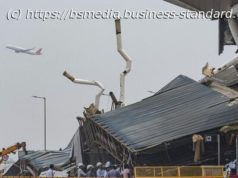Such disasters symbolize capitalism’s failure to secure basic human rights and environmental protections in Brazil.
On January 25, a dam at Córrego do Feijão in Brumadinho, Minas Gerais, Brazil, collapsed. At least 300 people have been killed, buried alive in mud. To date, 179 bodies have been identified. It is expected that this number will continue to grow, representing a horrific human rights and environmental catastrophe. The collapse is, according to many, no accident. The owner of the dam is the Brazil-based transnational corporation Vale, which holds the status of being the globe’s largest producer of iron ore. On February 21, Vale announced that it would pay each adult resident in Brumadinho 3,227.02 U. S. dollars (this is a year’s worth of minimum wages in Brazil).
The mining industry in Brazil has been pivotal in “post-colonial” capitalist development, with catastrophic human rights and environmental abuses. Vale has been in operation since 1942. It was privatized in 1997 during a wave of neoliberal economic reforms that swept across the world, seeking to privatize resources previously managed by the state or communally. With this move, the only incentive for Vale was profit-making, with little of that wealth remaining in the country to benefit the common good.
This is not the first time that a dam has collapsed in Brazil — and Vale has a track record of being implicated in human rights abuses. In fact, in 2015, a similar event occurred when two dams ruptured at an open-pit mine, also located in the state of Minas Gerais. That mine is operated by Samarco, a project between Vale and the Australian company PHP Billiton.
While this current story has gained international attention, it is important that the world pay heed to the fact that this incident was not just an accident; with another 130 dams in Brazil constructed just like the one that collapsed, the likelihood of this happening again is high. In the shorter term, families are displaced and in need of immediate housing and assistance. Organizations and movements in Brazil, as well as international partners in the U. S., are working to support in this effort.
This catastrophe is unfolding and ongoing, and the effects from January 25 will be felt for a long time. This is why the payout offered to Brumadinho residents is limited. It might aid in short-term assistance (while it is still arguably insufficient to account for the fact that people’s lives have been lost and homes destroyed, for which a monetary amount cannot be assessed), but it does nothing to address the long-term effects for Brumadinho residents, nor the larger structural problem of prioritizing corporate profit above all else.






